
Jakar: The Heart of Bhutan's Spiritual Heritage
Nestled in the central region of Bhutan, Jakar is a serene town known for its rich history and spiritual significance. Often referred to as the gateway to the Bumthang Valley, Jakar offers visitors a unique glimpse into Bhutanese culture and tradition. Jakar is home to several ancient temples and monasteries, including the iconic Jakar Dzong, also known as the Fortress of the White Bird. This majestic structure stands proudly on a hilltop, offering panoramic views of the town and surrounding valleys. The peaceful atmosphere and the sound of monks chanting create a meditative environment that captivates every visitor. The town is also famous for its vibrant festivals, such as the Jakar Tshechu. During this festival, locals and tourists alike gather to witness traditional dances, masked performances, and religious rituals. The blend of colorful costumes, rhythmic music, and spiritual energy makes it a memorable experience. Nature enthusiasts will find Jakar a paradise with its lush forests, rolling hills, and pristine rivers. Numerous hiking trails lead to scenic spots where one can enjoy the untouched beauty of the Bhutanese landscape. The nearby Tang Valley, with its picturesque villages and historic sites, is a must-visit for those seeking to explore beyond the town. Whether you are a history buff, a spiritual seeker, or a nature lover, Jakar offers a tranquil retreat that promises a journey of discovery and reflection.
Local tips in Jakar
- Visit Jakar Dzong early in the morning to avoid the crowds and enjoy the peaceful ambiance.
- Attend the Jakar Tshechu festival if your visit coincides with the dates; it's a rare opportunity to experience authentic Bhutanese culture.
- Pack warm clothing, as temperatures in Jakar can drop significantly, especially in the evenings.
- Hire a local guide to explore the hidden gems of the Bumthang Valley and learn about its history and legends.
- Try the local cuisine, including traditional dishes like buckwheat pancakes and red rice for an authentic culinary experience.
Jakar: The Heart of Bhutan's Spiritual Heritage
Nestled in the central region of Bhutan, Jakar is a serene town known for its rich history and spiritual significance. Often referred to as the gateway to the Bumthang Valley, Jakar offers visitors a unique glimpse into Bhutanese culture and tradition. Jakar is home to several ancient temples and monasteries, including the iconic Jakar Dzong, also known as the Fortress of the White Bird. This majestic structure stands proudly on a hilltop, offering panoramic views of the town and surrounding valleys. The peaceful atmosphere and the sound of monks chanting create a meditative environment that captivates every visitor. The town is also famous for its vibrant festivals, such as the Jakar Tshechu. During this festival, locals and tourists alike gather to witness traditional dances, masked performances, and religious rituals. The blend of colorful costumes, rhythmic music, and spiritual energy makes it a memorable experience. Nature enthusiasts will find Jakar a paradise with its lush forests, rolling hills, and pristine rivers. Numerous hiking trails lead to scenic spots where one can enjoy the untouched beauty of the Bhutanese landscape. The nearby Tang Valley, with its picturesque villages and historic sites, is a must-visit for those seeking to explore beyond the town. Whether you are a history buff, a spiritual seeker, or a nature lover, Jakar offers a tranquil retreat that promises a journey of discovery and reflection.
When is the best time to go to Jakar?
Iconic landmarks you can’t miss
Phobjikha Valley
Explore the breathtaking beauty of Phobjikha Valley, a serene haven for nature lovers and culture enthusiasts in Bhutan.
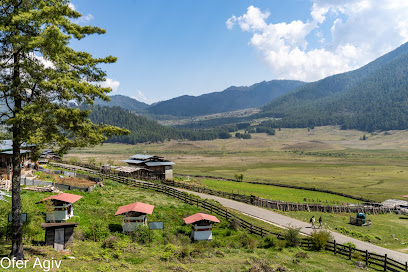
Chimi Lhakhang
Discover the spiritual heart of Bhutan at Chimi Lhakhang, the Fertility Temple nestled in the stunning Punakha Valley, a must-see for every traveler.
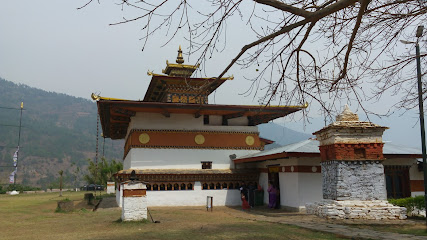
Kurjey Lhakhang སྐུ་རྗེས་ལྷ་ཁང་།
Explore the rich spiritual heritage of Kurjey Lhakhang, a stunning Buddhist temple in Jakar, Bhutan, surrounded by breathtaking Himalayan landscapes.
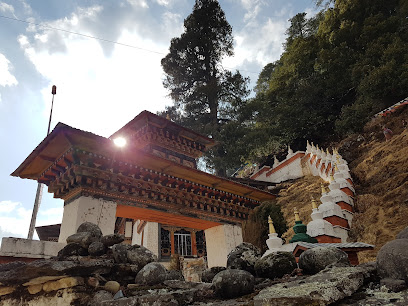
Trongsa Dzong ཀྲོང་གསར་རྫོང།
Discover the architectural splendor and cultural significance of Trongsa Dzong, a stunning fortress that stands as a symbol of Bhutan's rich heritage.
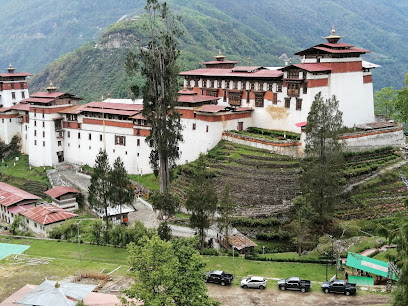
Jamphel Lhakhang བྱམས་་པ་ལྷ་ཁང་།
Discover the tranquility and cultural richness of Jamphel Lhakhang, a beautiful Buddhist temple in Jakar, Bhutan, perfect for spiritual exploration and breathtaking views.
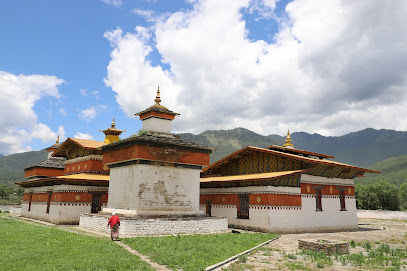
Trashigang Dzong
Discover the architectural beauty and spiritual serenity of Trashigang Dzong, a stunning fortress-monastery in the heart of Bhutan.
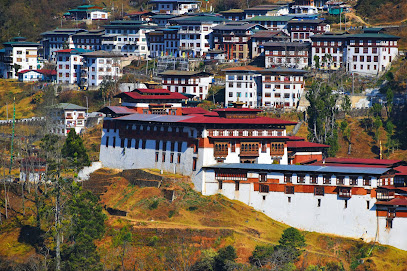
Taa-Dzong བལྟ་རྫོང་།
Explore Bhutan's cultural treasures at Taa-Dzong, a heritage museum in Trongsa showcasing the rich history and artistry of the region.
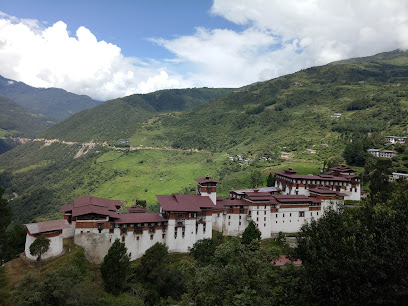
Lhuentse Dzong
Explore the stunning Lhuentse Dzong Fortress, a cultural treasure in Bhutan offering breathtaking views and rich history.
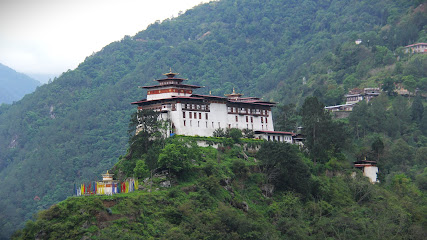
Swiss Guest House Bumthang, Kharsumphe
Discover comfort and local charm at Swiss Guest House Bumthang, the perfect retreat for travelers exploring the spiritual heart of Bhutan.

Chamkhar Town
Explore Chamkhar Town, a vibrant market in Bhutan's Bumthang Valley, where tradition meets beauty amidst scenic landscapes.
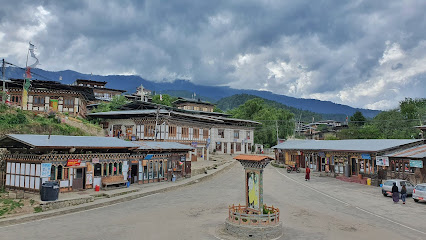
Jakar Dzong བྱ་དཀར་རྫོང་།
Explore Jakar Dzong, a historic fortress in Bhutan offering stunning views, rich culture, and a glimpse into the country's architectural heritage.
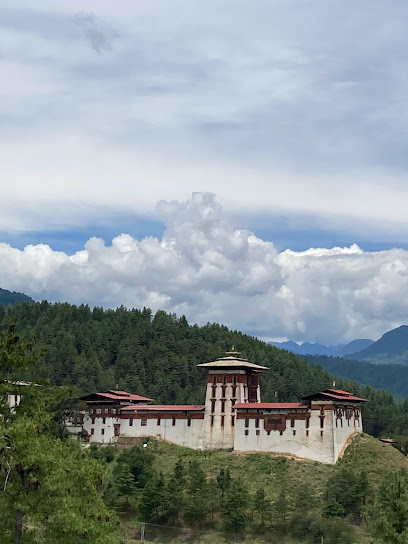
Jakar Village Lodge
Experience the serene beauty and cultural richness of Bhutan at Jakar Village Lodge, your perfect getaway in the Himalayas.

Amankora, Bumthang
Experience unparalleled luxury and cultural immersion at Amankora, Bumthang, a serene retreat near Bhutan's historic Wangdichholing Palace.
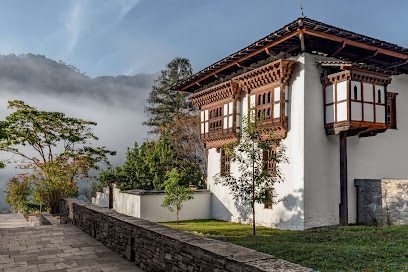
Trongsa Dzong View Point
Explore the breathtaking Trongsa Dzong View Point, a stunning vantage point offering panoramic views of Bhutan's historical fortress and picturesque landscapes.
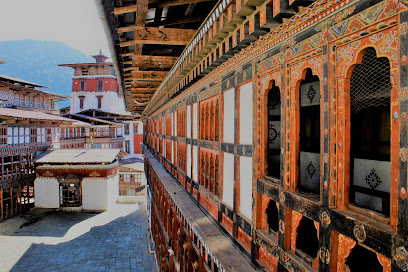
Bumthang Swiss Cheese
Explore the rich flavors of Bhutan at Bumthang Swiss Cheese, a charming shop offering artisanal cheeses and local delights near Bathpalathang Airport.
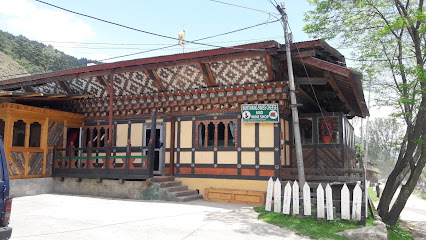
Unmissable attractions to see
Könchogsum Lhakhang དཀོན་མཆོག་གསུམ་ལྷ་ཁང་།
Discover the serene beauty and spiritual essence of Könchogsum Lhakhang, a remarkable Buddhist temple nestled in the heart of Jakar, Bhutan.
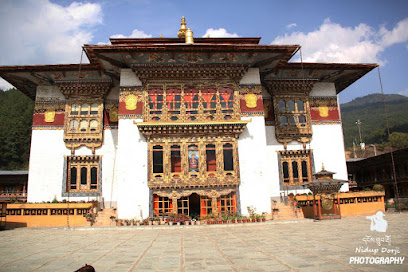
Jakar Dzong བྱ་དཀར་རྫོང་།
Discover the historic Jakar Dzong in Bumthang, a stunning fortress showcasing Bhutan's unique architecture and rich cultural heritage amidst breathtaking landscapes.
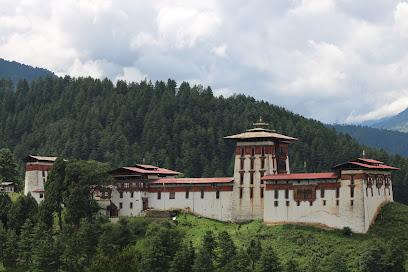
Choedrak ཆོས་བྲག།
Explore the serene beauty and rich spiritual heritage of Choedrak Monastery, a hidden gem in the heart of Bhutan.
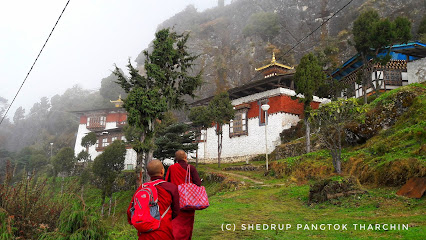
Jakar Nagtshang
Explore Bhutan's rich cultural heritage at Jakar Nagtshang, where history comes alive through captivating exhibits and stunning architecture.
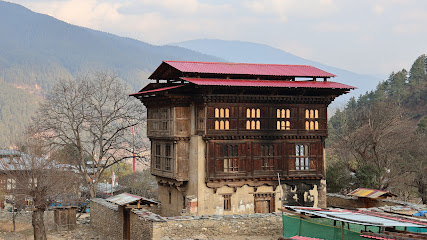
Essential places to dine
Ngawang home stay bumthang tamzhing
Discover authentic Bhutanese hospitality at Ngawang Home Stay in Bumthang - where tradition meets comfort amidst breathtaking landscapes.
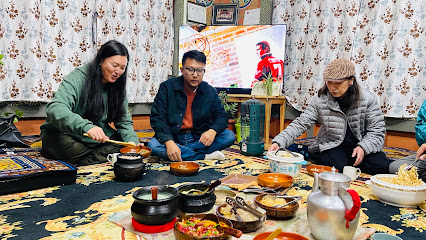
BTCL Guest House
Discover the flavors of Bhutan at BTCL Guest House - where authentic cuisine meets warm hospitality in the heart of Jakar.
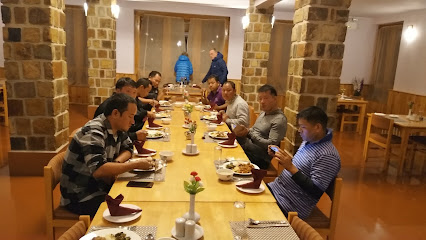
Swiss Guest House Restaurant
Experience authentic Bhutanese flavors and international cuisine at Jakar's Swiss Guest House Restaurant - a culinary haven for every traveler.
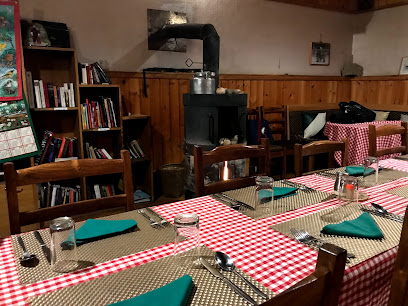
Chef Fast food (CFF) pizza and burger
Discover the delicious world of fast food at Chef Fast Food (CFF) in Jakar – where every bite is packed with flavor!
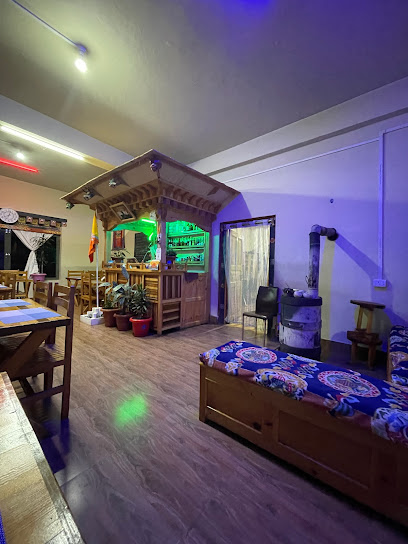
Hotel Kinley
Experience authentic Bhutanese cuisine at Hotel Kinley in Jakar – where every meal is a celebration of local flavors.
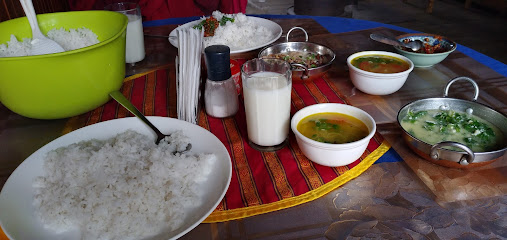
HOTEL YEDZIN WANGYAL
Experience authentic Bhutanese cuisine at Hotel Yedzin Wangyal in Chamkhar Bumthang - where every meal tells a story.
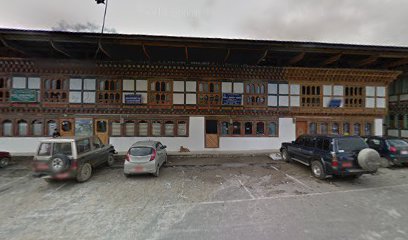
Noryang Resturant ནོར་གཡང་ཟ་ཁང་།
Experience authentic Bhutanese cuisine at Noryang Restaurant in Jakar – where every dish tells a story.
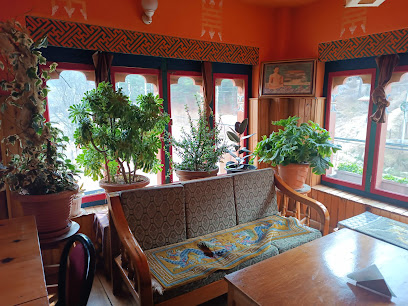
Momo Corner, Bumthang
Experience authentic Bhutanese cuisine at Momo Corner in Bumthang - home of delicious momos and traditional dishes.
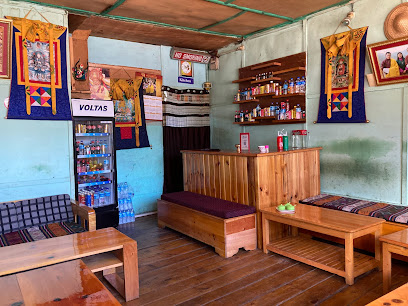
Kharamphay, Tangsibi, Ura, Bumthang
Discover authentic Bhutanese cuisine at Kharamphay in Bumthang's Ura valley - a delightful dining experience amidst stunning scenery.
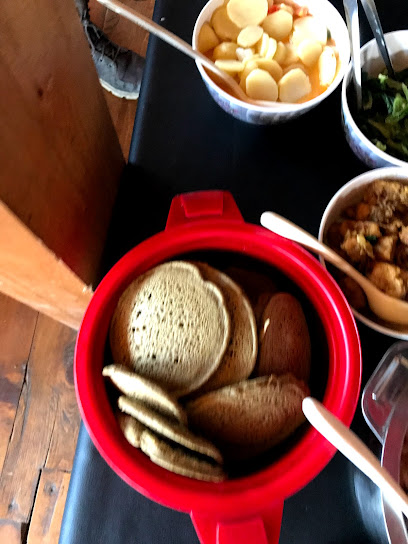
Sherab Dema Homestay
Immerse yourself in authentic Bhutanese culture at Sherab Dema Homestay in Jakar - where hospitality meets tradition.
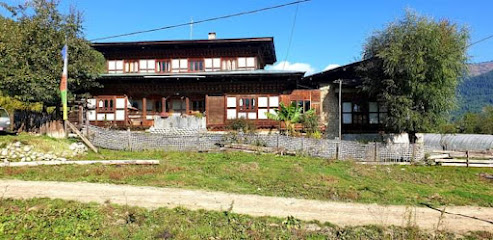
Deki Restaurant (noodles and momos)
Discover authentic Bhutanese flavors at Deki Restaurant in Jakar, specializing in delicious noodles and momos for every palate.
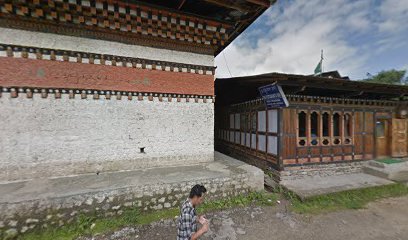
Norzin Restaurant
Experience authentic Bhutanese cuisine at Norzin Restaurant in Lamti – a culinary haven blending tradition with flavor.
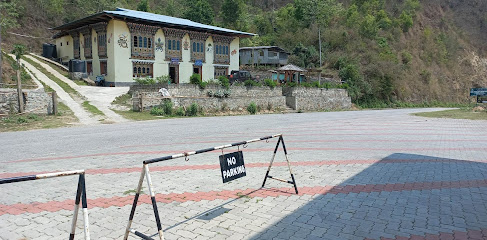
Food Bowl Kitchen
Discover the essence of Bhutanese cuisine at Food Bowl Kitchen in Jakar – where flavors meet tradition.
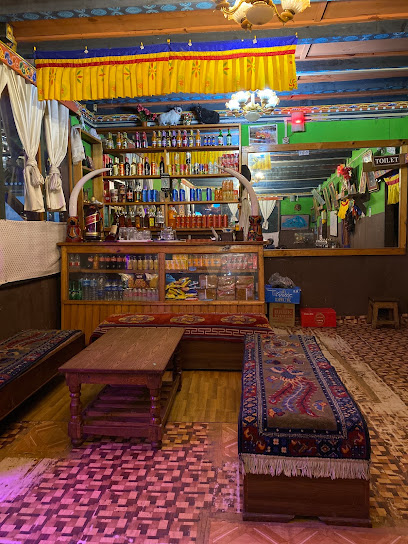
Thukpa Shop
Experience the essence of Bhutanese cuisine at Thukpa Shop—home to delicious thukpa and warm hospitality in Jakar.
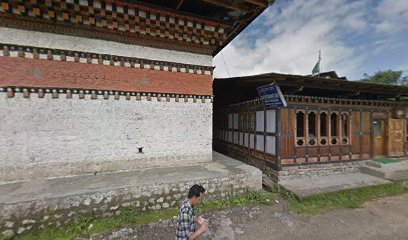
Tashi Cholling lodging
Savor authentic Bhutanese flavors at Tashi Cholling Lodging in Jakar – a true taste of local culture amidst stunning landscapes.
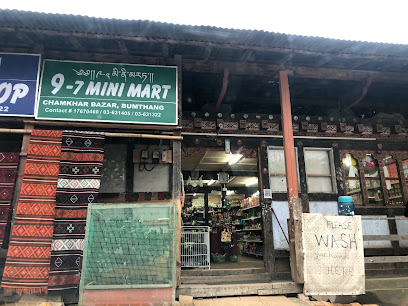
Markets, malls and hidden boutiques
Bumthang Sports & Gifts Corner
Explore the charm of Bumthang Sports & Gifts Corner in Jakar, where unique Bhutanese crafts and gifts await every traveler.
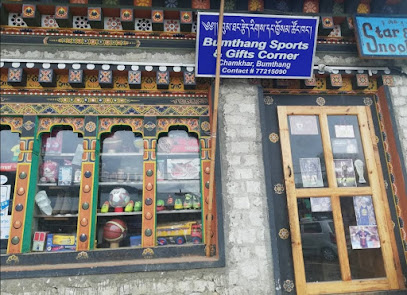
Karchung Tshongkhang
Explore Karchung Tshongkhang: A charming general store along the Bumthang-Ura Highway, offering unique local products and a taste of Bhutanese culture.
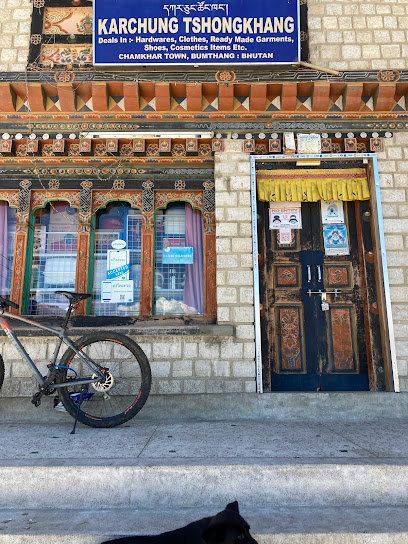
YESHI General Store
Explore the flavors of Jakar at YESHI General Store, your go-to destination for unique Asian groceries and local culinary delights.
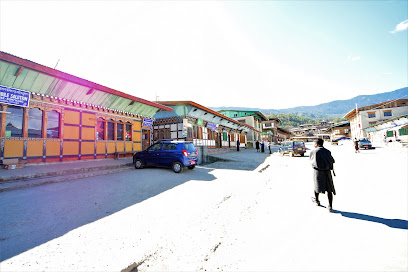
Home Collection
Explore local crafts and everyday essentials at Home Collection, Jakar's charming general store, along the scenic Bumthang - Ura Highway.
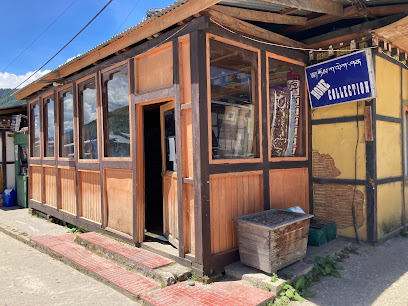
Family Mart
Explore the best of local groceries and snacks at Family Mart, your convenient stop in Jakar for all your travel needs.
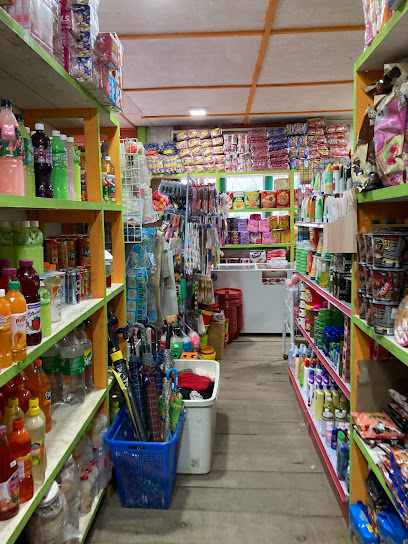
Durga General Shop
Explore the charm of Durga General Shop in Jakar, your destination for authentic Bhutanese handicrafts and local treasures.
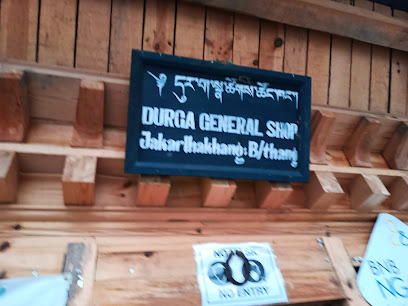
Padam General Shop and Restaurant
Experience the vibrant flavors and warm hospitality at Padam General Shop and Restaurant in Jakar, Bhutan.
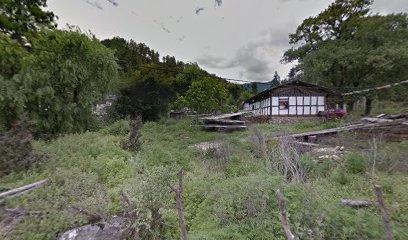
Upeal Dharma Sherey General Shop
Discover unique local crafts and warm hospitality at Upeal Dharma Sherey General Shop in Jakar, a must-visit for every traveler.
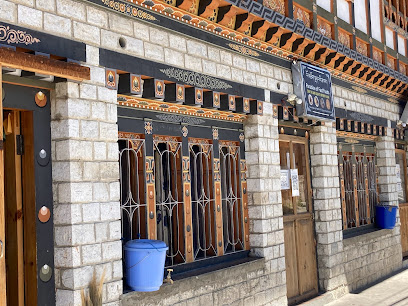
Mangal Vegetable shop
Explore the vibrant Mangal Vegetable Shop in Jakar for fresh, local produce that captures the essence of Bhutanese cuisine and culture.
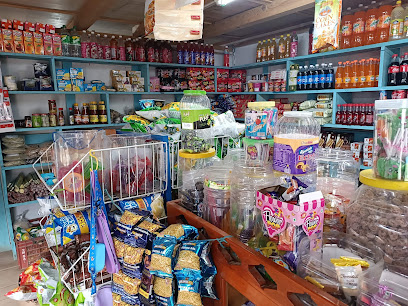
Choney Dema General Store
Explore Choney Dema General Store in Jakar for a unique shopping experience filled with local products and authentic Bhutanese crafts.
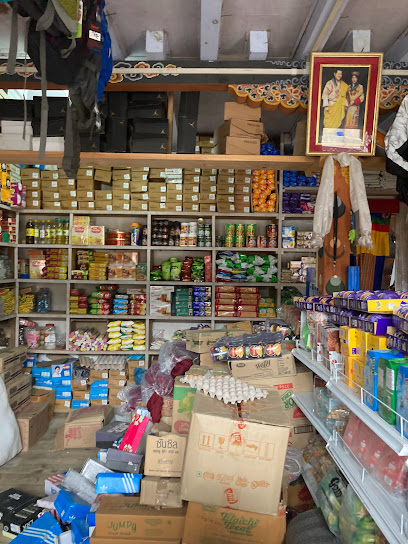
Bumthang Hardware & Electronicals
Explore Bumthang Hardware & Electronicals for all your DIY needs in Jakar, Bhutan. A local favorite for quality tools and electronics.
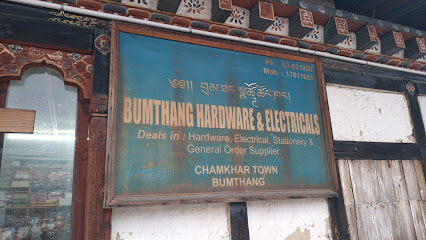
Grace Tshongkhang
Explore Grace Tshongkhang in Jakar, where local Bhutanese crafts and delicious snacks await every curious traveler.
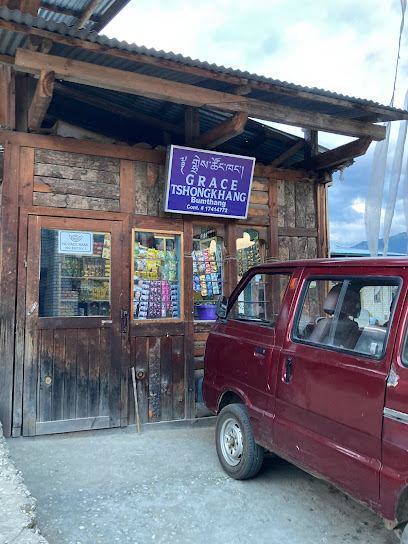
LY Store
Explore LY Store in Jakar for unique local crafts, essentials, and a taste of Bhutanese culture in a friendly shopping atmosphere.
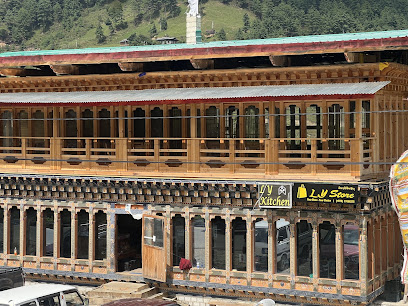
DK General Shop
Discover the essence of Bhutanese culture at DK General Shop in Jakar, offering unique local products and a warm community atmosphere.
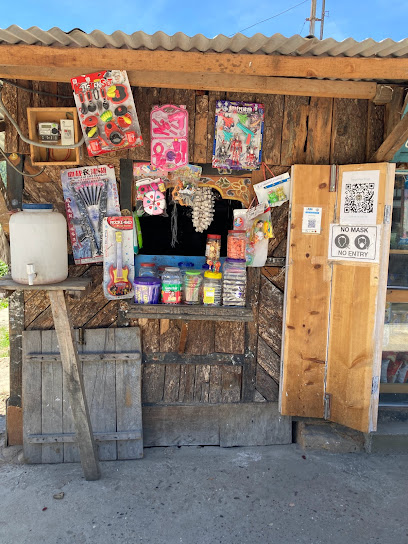
Phuenam General Shop
Explore the charm of Jakar at Phuenam General Shop, where local products and friendly service create a unique shopping experience.
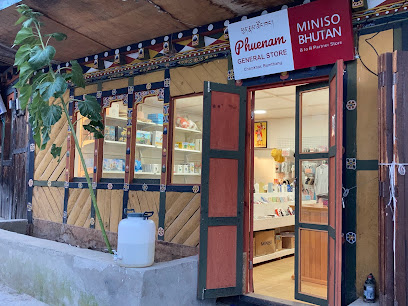
Essential bars & hidden hideouts
Bumthang Brewery Red Panda Beer
Explore the flavors of Bhutan at Bumthang Brewery Red Panda Beer, where craft brewing meets stunning natural beauty.
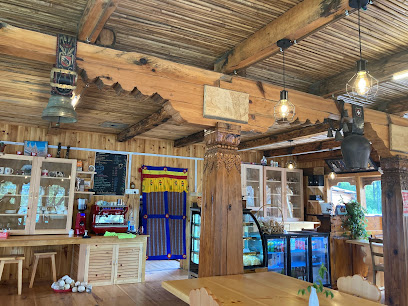
Cafe Perk
Experience the comforting charm of Cafe Perk in Jakar, where local flavors meet cozy ambiance, perfect for travelers seeking a delightful respite.
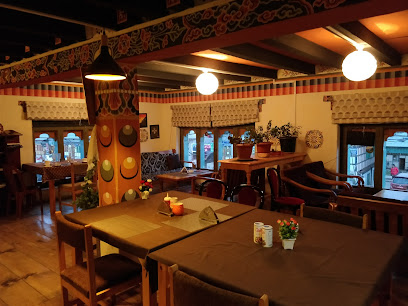
Noryang Resturant ནོར་གཡང་ཟ་ཁང་།
Savor authentic Bhutanese cuisine at Noryang Restaurant in Jakar, where tradition meets taste in a cozy setting.
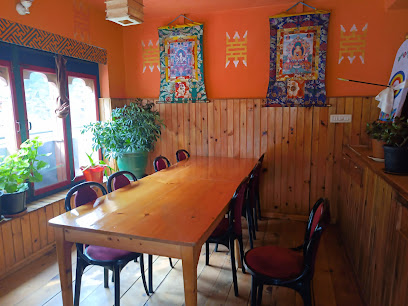
Food Bowl Kitchen
Experience the authentic taste of Bhutan at Food Bowl Kitchen in Jakar, offering traditional dishes in a cozy setting.
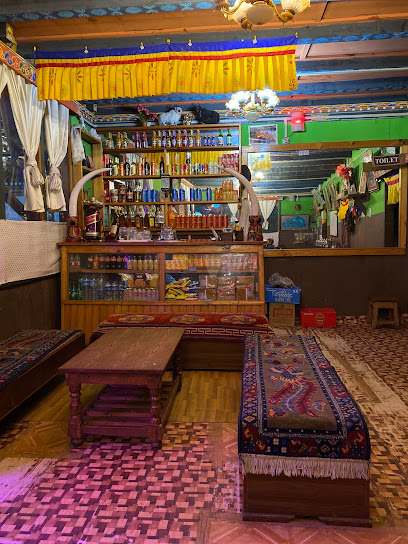
Friends Restaurant & Bar
Discover authentic Bhutanese flavors and friendly ambiance at Friends Restaurant & Bar in Jakar, perfect for tourists and locals alike.
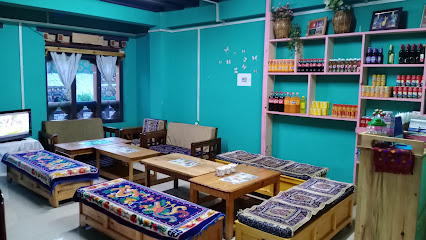
Tenzin Wangmo Bar
Discover Tenzin Wangmo Bar in Jakar – a lively bar offering a blend of local flavors and warm hospitality amidst Bhutan's stunning landscapes.
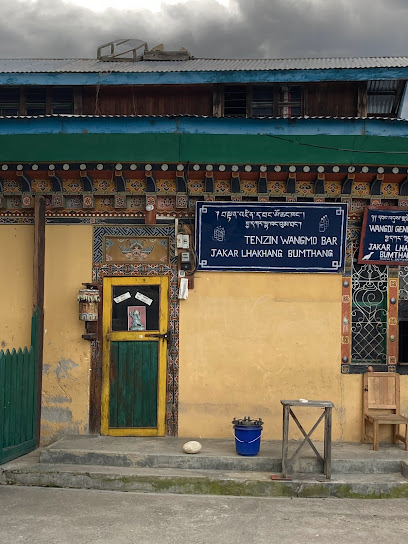
Tabdey Restaurant
Experience the vibrant tastes and warm atmosphere of Tabdey Restaurant, a premier Asian dining destination in Jakar, Bhutan.
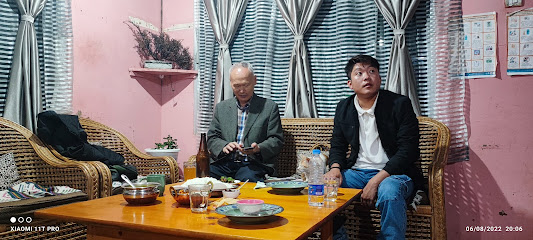
Dilu.K Restaurant & Bar
Experience quick and delicious fast food at Dilu.K Restaurant & Bar, the perfect stop for travelers in Jakar, Bhutan.
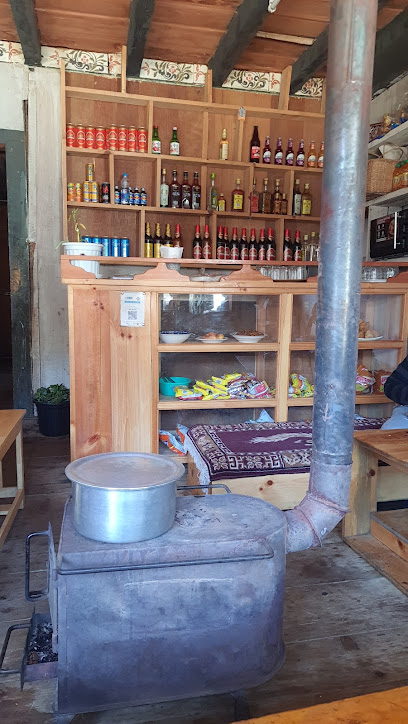
Ura Yurgang
Experience the charm of Ura Yurgang, a cozy bar in Ura, Bhutan, where local spirits and warm hospitality meet stunning natural beauty.
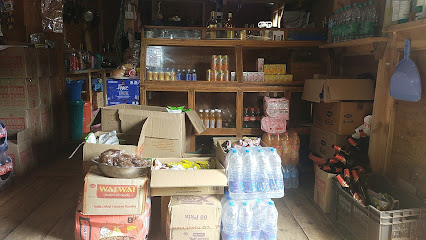
Gyombo general and bar
Experience the vibrant atmosphere and authentic Bhutanese flavors at Gyombo General and Bar in Jakar, a cultural gem for every traveler.
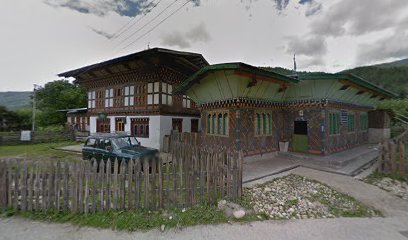
Chenzom Bar
Experience the vibrant energy of Jakar at Chenzom Bar, where local flavors and warm hospitality await every visitor.
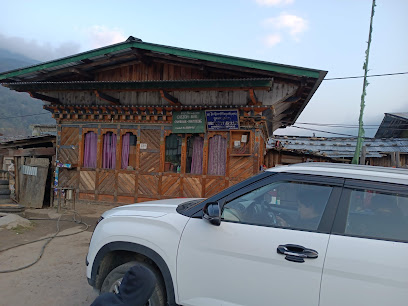
Subba Bar
Discover the vibrant ambiance of Subba Bar in Jakar, where local drinks and rich culture blend seamlessly for an unforgettable experience.
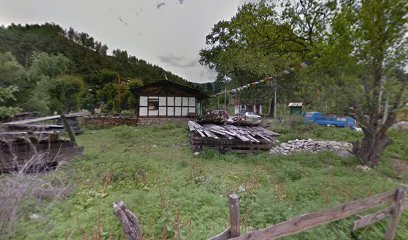
Chechaymo Bar
Experience the vibrant local culture at Chechaymo Bar in Jakar, where warm hospitality meets a cozy atmosphere for unforgettable evenings.
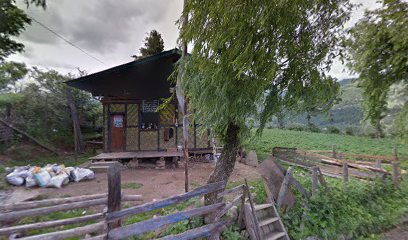
Chomo Restuarent
Discover the authentic flavors of Bhutan at Chomo Restaurant in Jakar, where every dish tells a story of tradition and hospitality.
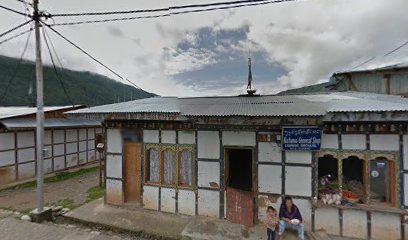
Local Phrases
-
- Helloཇོ གཏོར
[jo tor] - Goodbyeབྱང བཅུག
[yang chug] - Yesཡིན
[yin] - Noམ་ཡིན
[ma yin] - Please/You're welcomeཤེས་ཡའི་འོག
[she ya'i og] - Thank youབསྐོར
[sakor] - Excuse me/Sorryབསྐོར
[sakor] - How are you?ཁྱེད་ཀྱི་གཏོར?
[khe kyee tor?] - Fine. And you?ལེགས་གཏོར. ཁྱེད་དེ?
[lek tor. khe de?] - Do you speak English?ཡང་དེ་ཨིང་ལིཤ་འདི་ཞིབ་སྦྱོར?
[yang de English di zhib jor?] - I don't understandཁྱེད་ཀྱི་གཏོར?
[khe kyee tor?]
- Helloཇོ གཏོར
-
- I'd like to see the menu, pleaseམེ་ནི་ཁོལ་ན་བཅུག
[me ni khol na chug] - I don't eat meatགིས་ལེབ་འབབ་བཅུག
[gi leb bab chug] - Cheers!ལསང་བཅུག!
[lasang chug!] - I would like to pay, pleaseང་ངེད་བཅུག, བཅུག
[nga nged chug, chug]
- I'd like to see the menu, pleaseམེ་ནི་ཁོལ་ན་བཅུག
-
- Help!སྔར་བཅུག!
[ngar chug!] - Go away!སུམ་བཅུག!
[sum chug!] - Call the Police!ལས་ཆེན་ཡོང་ཇོར!
[las chen yong jor!] - Call a doctor!ཨོད་ཐོར་ཡོང་ཕྱིན!
[o thar yong chen!] - I'm lostང་དེར་བྱ་བཅུག
[nga der ja chug] - I'm illང་འཛིན་བཅུག
[nga dzin chug]
- Help!སྔར་བཅུག!
-
- I'd like to buy...ང་ངེད་ཀྱི་གཏོར
[nga nged kyee tor] - I'm just lookingང་ར་བྱིབས
[nga ra yibs] - How much is it?དངོས་ཀྱི་གཏོར?
[ngos kyee tor?] - That's too expensiveདེ་མའི་གཏོར
[de ma'i tor] - Can you lower the price?ཁྱབ་ནི་གཏོར?
[khab ni tor?]
- I'd like to buy...ང་ངེད་ཀྱི་གཏོར
-
- What time is it?གུས་པར་ཉིད་ཁར?
[guspar nid kar?] - It's one o'clockམིང་དེར་ཤུ ཆུ
[ming der shu chu] - Half past (10)ཁྱེར་དེར་(10)
[kher der (10)] - Morningསྔོན
[ngon] - Afternoonཆུས
[chu] - Eveningམཚ
[tsa] - Yesterdayཁ་ཞི
[kha zhi] - Todayདེ་ར་ཞེས
[de ra zhe] - Tomorrowམགུང
[gang] - 1གཅིག
[gchig] - 2གཉིས
[gnyis] - 3གསུམ
[gsum] - 4མུ
[mu] - 5ལྔ
[lnga] - 6དྲུག
[drug] - 7བཅད
[chad] - 8ཁྲི
[khri] - 9དགུ
[dgus] - 10བར
[bar]
- What time is it?གུས་པར་ཉིད་ཁར?
-
- Where's a/the...?ལག་ཞིས་དུ་...
[lag zhi du...] - What's the address?ཐོབ་ལས་གཏོར?
[thob las tor?] - Can you show me (on the map)?ཚོག་འདི་གཏོར?
[tsok di tor?] - When's the next (bus)?གསོལ་གྲོས་དུ་གཏོར?
[sol gros du tor?] - A ticket (to ....)གཏེར་ཁོང་(....)
[ter khong (....)]
- Where's a/the...?ལག་ཞིས་དུ་...
History of Jakar
-
Jakar, also known as 'Little White Bird,' was founded in the 16th century by the great Tibetan Lama Ngagi Wangchuk. Legend says that a white bird signaled an auspicious location for the construction of a monastery, which eventually led to the establishment of Jakar Dzong. This dzong became the central administrative and monastic institute for the region.
-
In 1646, Jakar Dzong played a pivotal role in the defense against Tibetan invasions. The battle was fierce, and the Bhutanese forces, led by the Zhabdrung Ngawang Namgyal, successfully repelled the Tibetan army. This victory cemented Jakar's importance as a strategic and spiritual stronghold in Bhutan.
-
Kurjey Lhakhang, one of the most sacred monasteries in Bhutan, was built in the 8th century. It is believed that Guru Rinpoche meditated in a cave here, leaving his body imprint on a rock. This monastery complex, located near Jakar, is a significant pilgrimage site and a testament to the region's deep spiritual heritage.
-
Constructed in the 19th century by Trongsa Penlop Jigme Namgyal, the Wangduechhoeling Palace served as the residence of the first and second kings of Bhutan. Located in Jakar, this palace symbolizes the transition of Bhutan from a feudal society to a modern state under the Wangchuck dynasty.
-
Jakar hosts the Jambay Lhakhang Drup, an annual festival that celebrates the establishment of Jambay Lhakhang, one of the oldest temples in Bhutan. The festival features traditional dances, including the sacred fire dance 'Mewang,' and attracts pilgrims and tourists from all over the world to witness its vibrant cultural performances.
-
The Bumthang Cultural Trek, which starts from Jakar, offers a unique opportunity to explore the historical and cultural landscapes of the Bumthang Valley. The trek passes through ancient temples, monasteries, and traditional villages, providing an immersive experience into the rich heritage of the region.
Jakar Essentials
-
Jakar is located in the Bumthang District of Bhutan. The nearest international airport is Paro International Airport, approximately 270 kilometers away. From Paro, you can take a domestic flight to Bathpalathang Airport, which serves Jakar. Alternatively, you can travel by road, which takes around 8 to 10 hours, depending on weather and road conditions. There are also regular bus services from Thimphu and other major towns.
-
Jakar is a small town, and many of its attractions are within walking distance. Taxis are available for hire and are relatively inexpensive. Public buses operate within the town and connect to nearby areas. Renting a car is another option if you prefer to explore at your own pace; however, be prepared for winding mountain roads. Bicycles can also be rented for short-distance travel.
-
The official currency in Bhutan is the Bhutanese Ngultrum (BTN), which is pegged to the Indian Rupee (INR). Credit cards are accepted in some hotels, restaurants, and shops, but it is advisable to carry cash, especially in smaller establishments and rural areas. ATMs are available in Jakar, but it is wise to withdraw sufficient cash beforehand to ensure you have enough funds during your stay.
-
Jakar is generally a safe destination for tourists. However, it is always advisable to take standard precautions. Avoid walking alone at night in unfamiliar areas and keep an eye on your belongings in crowded places. There are no specific high-crime areas targeting tourists, but staying vigilant and aware of your surroundings is always a good practice.
-
In case of emergency, dial 113 for police assistance or 112 for medical emergencies. Jakar has a local police station and a medical facility that can handle minor health issues. It is highly recommended to have travel insurance that covers medical emergencies. Pharmacies are available in the town where you can purchase over-the-counter medications.
-
Fashion: Do dress modestly, especially when visiting religious sites. Avoid wearing revealing clothing. Religion: Do respect local customs and traditions. Always remove your shoes before entering temples and wear appropriate attire. Public Transport: Do be respectful and offer your seat to elderly passengers. Don’t eat or drink on public transport. Greetings: Do greet people with a slight bow and a 'Kuzuzangpo' (hello). A handshake is also acceptable. Eating & Drinking: Do try local delicacies and accept food offerings graciously. Don’t refuse hospitality, as it is considered impolite.
-
To experience Jakar like a local, visit the local markets where you can buy fresh produce and traditional Bhutanese goods. Engage with locals, as they are often friendly and willing to share stories about the town's history and culture. Don't miss visiting Jakar Dzong, a fortress-monastery with stunning views of the valley. For a unique experience, attend a local festival (Tsechu) where you can witness traditional mask dances and rituals.
Trending Landmark in Jakar
-
Phobjikha Valley
-
Chimi Lhakhang
-
Kurjey Lhakhang སྐུ་རྗེས་ལྷ་ཁང་།
-
Trongsa Dzong ཀྲོང་གསར་རྫོང།
-
Jamphel Lhakhang བྱམས་་པ་ལྷ་ཁང་།
-
Trashigang Dzong
-
Taa-Dzong བལྟ་རྫོང་།
-
Lhuentse Dzong
-
Swiss Guest House Bumthang, Kharsumphe
-
Chamkhar Town
-
Jakar Dzong བྱ་དཀར་རྫོང་།
-
Jakar Village Lodge
-
Amankora, Bumthang
-
Trongsa Dzong View Point
-
Bumthang Swiss Cheese
Nearby Cities to Jakar
-
Things To Do in Bumthang
-
Things To Do in Trongsa
-
Things To Do in Mongar
-
Things To Do in Wangdue Phodrang
-
Things To Do in Trashigang
-
Things To Do in Punakha
-
Things To Do in Thimphu
-
Things To Do in Paro
-
Things To Do in Phuentsholing
-
Things To Do in Guwahati
-
Things To Do in Gangtok
-
Things To Do in Shillong
-
Things To Do in Rangpur
-
Things To Do in Siliguri
-
Things To Do in Darjeeling









